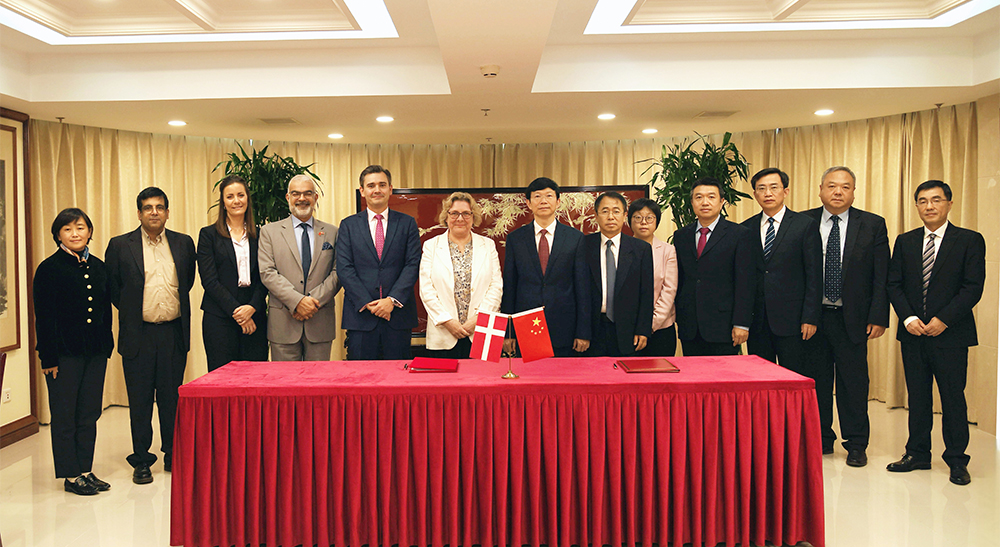2024 AASLD | STRIDE方案治疗Child-Pugh B级uHCC的真实世界探索
时间:2024-11-21 22:00:40 热度:37.1℃ 作者:网络
2024年11月15日-19日,美国肝病研究学会年会(AASLD 2024)于美国圣迭戈举行。此次会议云集肝病研究领域的最新研究成果与前沿探索,为与会者搭建出一个深化肝病认知、拓宽专业视野的高端学术交流平台。
为便于广大读者及时捕捉学术精髓,肝胆相照平台/肝癌在线特此甄选AASLD热点研究,精心翻译并呈现大会最新动态与核心看点。本篇聚焦“肝癌”这一专题,深入剖析其最新研究进展与临床应用前景。
➤ 摘要号/页码:221/S156
Child-Pugh B级患者接受一次Tremelimumab和规律间隔Durvalumab(STRIDE方案)治疗不可切除肝细胞癌(uHCC)的真实世界队列研究结果
Outcomes of Child-Pugh B Patients Treated with Single Tremelimumab Regular Interval Durvalumab (Stride) for Unresectable Hepatocellular Carcinoma (uHCC) in a Real-World Cohort
Shalini Bansal,Thomas Jefferson University
➢ 背景:既往研究表明,与Child-Pugh A级的患者相比,Child-Pugh B级的不可切除肝细胞癌(uHCC)患者在接受阿替利珠单抗和贝伐珠单抗 (A+B) 治疗时,总生存期 (OS) 显著缩短 (4.7个月)。HIMALAYA试验表明,STRIDE与索拉非尼相比,在Child-Pugh A级患者中OS有显著改善。本研究利用真实世界的队列,描述STRIDE在uHCC和Child-Pugh B级肝硬化患者中的应用和结果。
• Background: Prior research has demonstrated that Veterans Affairs CP-B patients with uHCC had reduced overall survival (OS) (4.7 months) when treated with atezolizumab and bevacizumab (A+B) versus patients with CP-A status. The HIMALAYA trial demonstrated that STRIDE significantly improved OS when compared to sorafenib in a CP-A population. We utilize a real-world cohort to describe the utilization and outcomes of STRIDE in patients with uHCC and CP-B cirrhosis.
➢ 方法:在这项回顾性队列研究中,研究者通过退伍军人事务医疗系统(VA)中的企业数据仓库(CDW),识别了所有在2015年1月1日至2024年3月31日之间诊断为HCC并接受过至少一剂STRIDE方案的患者,从CDW中提取了患者的基本信息、肝病病因、基线实验室参数和伴随用药。ECOG表现状态、BCLC分期、既往治疗、既往化疗使用情况、治疗周期数和不良事件由单一的病历审阅者使用REDCAP手动提取。使用 Kaplan-Meier 方法评估生存结果。
• Methods: In this retrospective cohort study, we identified all patients within the Veterans Affairs Medical System diagnosed with HCC from 1/1/2015 to 3/31/2024 who had received at least one dose of the STRIDE regimen using the VA Corporate Data Warehouse (CDW). Demographics, etiology of liver disease, baseline laboratory parameters, and concomitant medications were extracted from the CDW. ECOG performance status, BCLC staging, prior treatments, prior chemotherapy used, number of treatment cycles, and adverse events were manually abstracted by a single chart reviewer using REDCAP. Survival outcomes were evaluated using Kaplan-Meier methodologies.
➢ 结果:117名接受STRIDE治疗的uHCC患者中,87名(74.4%)为Child-Pugh A级,30名(25.6%)为Child-Pugh B级。所有Child-Pugh B级患者均为男性,年龄中位数为73岁[IQR 66-76],22名(73.3%)为白人,10/11/8/1(33/37/27/3%)与ALD/HCV ± ALD/MASH/其他肝硬化相关。16名(53%)有药物控制性腹水,1名(3%)有难治性腹水。基线ALBI分级G1/G2A/G2B/G3的比例分别为19%/19%/30%/33%。
Child-Pugh B级患者中位数肿瘤数为2个[1-5],最大肿瘤大小为4.9cm[2.6-11.1]。3名患者(10%)为BCLC A期,4名(13%)为BCLC B期,22名(76%)为BCLC C期,其中15名(50%)有VP3或VP4血管侵犯。6名(20%)有恶性淋巴结转移,4名(13%)有远处转移。中位AFP为466 ng/ml[IQR 8-2067]。大多数患者(17/30,59%)接受过先前的肝脏局部治疗(LRT):TACE 12/30(41%),TARE 2(8%),消融2(8%),切除1(4%),10名患者接受过>1次LRT。
数据采集时,Child-Pugh B级患者中STRIDE的中位治疗周期为2.5次,3名患者仍在继续接受治疗。9名(30%)患者发生了2-4级免疫相关不良事件(IRAE),其中2例导致停药。停药原因包括死亡(12例,44%)、疾病进展(8例,30%)、免疫相关不良事件(2例,8%)或其他原因(5例,18%)。中位OS:Child-Pugh B级患者的中位OS为6.2个月[95% CI 2.9-11.8],而Child-Pugh A级患者的中位OS为NE[12.3-NE]。
• Results: Of the 117 uHCC patients who received STRIDE, 87 (74.4%) were CP-A and 30 (25.6%) were CP-B. All CP-B patients in this cohort were male with a median age of 73 years [IQR 66-76]. 22 (73.3%) were White with 10/11/8/1 (33/37/27/3%) related to ALD/HCV ± ALD/MASH/Other cirrhosis. 16 (53%) had medically controlled ascites, and 1 (3%) had refractory ascites. Baseline ALBI class: G1/G2A/G2B/G3 19%/19%/30%/33%.
CP-B patients had a median of 2 tumors [1-5] with the largest being 4.9 cm [2.6-11.1]. 3 patients (10%) were staged as BCLC A, 4 patients (13%) were staged as BCLC B, and 22 patients (76%) were staged as BCLC C. 15 patients (50%) had VP3 or VP4 vascular invasion, 6 patients (20%) had malignant lymph node involvement, and 4 patients (13%) had distant metastases. Median AFP was 466 ng/ml [IQR 8-2067]. The majority of patients (17/30, 59%) had received prior liver-directed therapy (LRT): TACE 12/30 (41%), TARE 2 (8%), ablation 2 (8%), or rep 1 (4%), with 10 patients receiving >1 prior LRT.
At data capture, a median of 2.5 cycles of STRIDE had been administered, and 3 patients continued receiving therapy. Grade 2-4 immune-related adverse events (IRAEs) occurred in 9/30 (32%), leading to discontinuation in 2 cases. Reasons for treatment discontinuation included death (12, 44%), progressive disease (8, 30%), IRAE (2, 8%), or other (5, 18%). Median OS: CP-B patients had a median OS of 6.2 months [95% CI 2.9 – 11.8], while CP-A patients had NE [12.3-NE].
➢ 结论:STRIDE在Child-Pugh B级患者中耐受良好。生存结果与其他免疫疗法在Child-Pugh B级退伍军人中的效果相似,与之前发表的接受索拉非尼、纳武单抗 (Chapin 等人,2023) 或 A+B治疗的类似Child-Pugh B级患者的经验相比更为有利。
• Conclusion: STRIDE was well-tolerated in CP-B patients with uHCC. Survival outcomes were similar to those observed with other immune-oncology (IO) treatments in CP-B veterans with uHCC and compared favorably to previously published experiences for similar CP-B patients receiving sorafenib, nivolumab (Chapin et al., 2023), or A+B.


